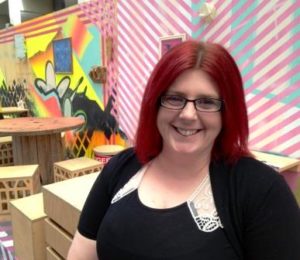
A prestigious Endeavour Research Fellowship will enable a PhD researcher at Flinders University to advance critical work into next generation detection technologies for chemical warfare agents.
Genevieve Dennison, who is currently undertaking her PhD on a Defence Science and Technology Group scholarship, with support from the Combatting Terrorism Technical Support Office (USA), will undertake her Fellowship at the Swiss Federal Office of Civil Protection in the renowned Spiez Laboratory under the supervision of Head of the Organic Chemistry, Detection and Decontamination branch, Dr Christophe Curty.
Miss Dennison’s Fellowship project will build on her previous research into supramolecular fluorescent sensing of chemical warfare agents as part of her PhD at Flinders.
Her next objective is to synthesise and evaluate a detection system that can tell the difference between two different classes of chemical warfare agents by exploiting their different chemical and structural properties.
Miss Dennison said she was excited to have the opportunity to work on a project that was particularly important given current world events involving the use of chemical warfare agents – and to be able to build important international relationships.
“I hope that my Fellowship will give me the chance to build long lasting links with international partners and networks that will facilitate collaboration between academia and Defence and Civil Protection agencies,” says Miss Dennison.
“I am looking forward to working internationally and learning from some of the foremost experts in defence science at the Spiez Laboratory.”
Her supervisor at Flinders, Associate Professor Martin Johnston, said the fellowship recognised the importance of Miss Dennison’s PhD work, which he said was outstanding since it has not only provided highly significant fundamental insights into the detection of CWAs, but has identified potential simulants for researchers to use, more accurately mimicking CWAs but without the associated toxicity.
“Genevieve has done a stellar job in putting together an application of suitable standard and significance to be selected from such a competitive pool,” he said.
“The award reflects not only the quality of the science but also the relevance of the proposed outcomes given recent world events.
“This award has provided Genevieve with a unique opportunity to work abroad in such a highly prestigious laboratory.
“It will no doubt allow her to expand upon, as well as develop new, international linkages in this key research area and we wish her all the best.”

